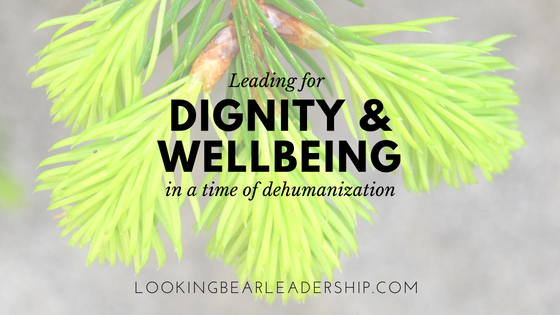It can be overwhelming to wait for clarity to come in times of suffering. Like silt mixed up into clear waters, no effort can speed the settling of obscuring factors. Gravity has to do its slow work and stillness is required. The poet Pádraig Ó Tuama suggests that in times of difficulty, “small narrative rafts” can carry us, allowing us to breathe, get our bearing, and stay alive.
Read MoreI was listening this morning to a man sitting near me in a coffee shop. To be clear, I didn’t want to listen to him – he was just so loud that it was impossible to tune him out. He was clearly someone who had an above average understanding of the political, economic, and environmental forces that were currently shaping our world. He spoke with great authority as his two table-mates listened with what appeared as a mix of skepticism and awe.
Read MoreWhether you are a professional thought partner who coaches individuals and groups or a person who finds themself partnering with others by happy accident, listening is the most important part of being a thought partner. In fact, I would argue that it’s the most important skill a person can build.
Read MoreThere's a man I see nearly every day at the coffee shop I work from. At least once a week he asks me to remind him of my name. We've talked a few times, he's asked what I do, I've explained the nonprofit to him, and he's told me about his work as a civil engineer. We sit at the same big common table. When he arrives, he always looks at me like I'm a guy he used to know but is surprised to see again. But he can never remember my name.
Read MoreSometimes, knowing the way forward is easy. I recently heard a politician taking the time to publicly explain the difference between what he was doing and what the Nazis did. Feeling the need to do that is a pretty solid sign you're going down the wrong road. But often, we're faced with decisions in our life and work that are not obviously good and bad.
Read MoreWho do you think of when you think of a leader? Leaders can often take on a larger than life presence in our imagination. They become icons, representative of what it means to lead. But these icons are often made into caricatures, one-dimensional people from whom we draw some problematic lessons. I want to introduce you to three leaders who've drawn problematic lessons from their icons of leadership.
Read MoreIt was supposed to be everything I wanted. As Visiting Assistant Professor for Community-Based Learning at Grand Valley State University, I had finally found a position that reflected my unique academic interests. The department chair and college dean were supportive and I got along great with the other three professors who were starting at the same time.
Read MoreIt was a full-blown mess. A bona fide shit-show. And she knew the bottom could fall out at any moment. She had been hired under less-than-honest circumstances, having significant financial problems hidden by her new employers during the interview process. Now, she couldn't sleep, felt like she had no allies, no good options, and a mission she deeply cared for that was in danger of being abandoned.
Read MoreIt can feel as though every decision in life and work requires a quick, and perfect action. The urgency of a faltering organization or difficult project can cause oscillation between full-bodied determination and desperate resignation. When the pressures of crushing social problems and uncertain politics compound that stress, it is common to feel
Read MoreOur biggest challenges in community leadership require thought partners. Unfortunately, our hero culture encourages us to go it alone in leadership. A Leadership Coach walks with nonprofit leaders, community organizers, faith leaders, and people working for social transformation on a journey of growth in confidence, capacity, and integrity. Here are 6 ways
Read MoreBecause community is a relational word that is both familiar and ambiguous, it is easy to gloss over the kinds of relationships a leader should seek to support their work. But, there are at least three kinds of relationships that can make all the difference for a person working in community leadership and engagement:
Read MoreIn Parker Palmer's seminal work The Courage To Teach, he points out that conversations on teaching focus mostly on the 'what's' of teaching, i.e. the subjects of teaching, a little on the 'how's' of teaching, and even less on the 'why's' of teaching. But the missing aspect, according to Palmer, is the discussion of the 'who' of leadership.
Read MoreIn our power-hungry society, the language of leadership is often attached to desires for control over, authority over, and management of other people. We are taught through media portrayals that our hopes and dreams should be attached to the trappings of individual power - money, possessions, control, and life beyond accountability.
Read More












